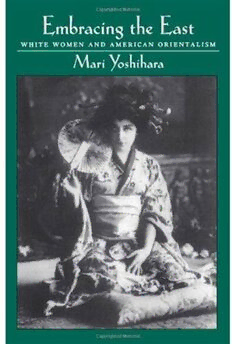
Embracing the East: White Women and American Orientalism PDF
255 Pages·2002·2.553 MB·English
Most books are stored in the elastic cloud where traffic is expensive. For this reason, we have a limit on daily download.
Preview Embracing the East: White Women and American Orientalism
Description:
As exemplified by Madame Butterfly, East-West relations have often been expressed as the relations between the masculine, dominant West and the feminine, submissive East. Yet, this binary model does not account for the important role of white women in the construction of Orientalism. Mari Yoshihara's study examines a wide range of white women who were attracted to Japan and China in the late nineteenth and early twentieth century and shows how, through their engagement with Asia, these women found new forms of expression, power, and freedom that were often denied to them in other realms of their lives in America. She demonstrates how white women's attraction to Asia shaped and was shaped by a complex mix of exoticism for the foreign, admiration for the refined, desire for power and control, and love and compassion for the people of Asia. Through concrete historical narratives and careful textual analysis, she examines the ideological context for America's changing discourse about Asia and interrogates the power and appeal--as well as the problems and limitations--of American Orientalism for white women's explorations of their identities. Combining the analysis of race and gender in the United States and the study of U.S.-Asian relations, Yoshihara's work represents the transnational direction of scholarship in American Studies and U.S. history. In addition, this interdisciplinary work brings together diverse materials and approaches, including cultural history, material culture, visual arts, performance studies, and literary analysis.
See more
The list of books you might like
Most books are stored in the elastic cloud where traffic is expensive. For this reason, we have a limit on daily download.
